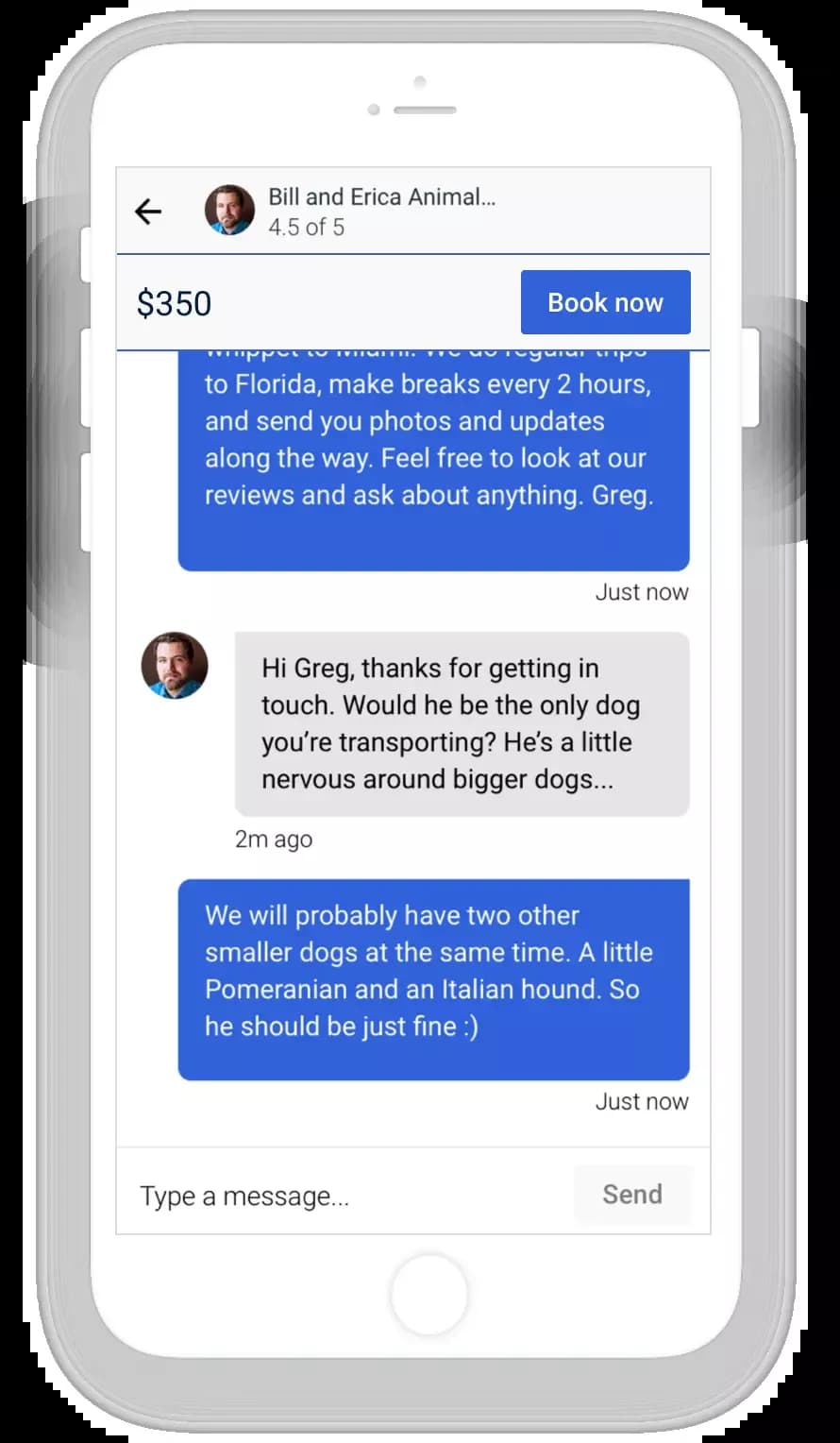How Much Does it Cost to Ship a Dog?
It’s hard to give an exact estimate on how much specific services will cost will cost. Several factors affect the cost of a pet move. These include:
- Size and breed
- Time of the year in which travel takes place
- Method of travel
- Distance of the trip
- Door-to-door or terminal-to-terminal
- If you or the transporter provide a carrier
- Special considerations required for your pet
- Solo VIP service or rideshare service
- Whether it's domestic or international pet travel
Hiring a Traditional Pet Transporter
Pet shipping companies are everywhere. While there are some mom-and-pop operations, they usually only work locally. They have a small fleet of drivers that deliver pets. Other businesses operate as a dispatch service, connecting you with their team of drivers.
Does FedEx Transport Dogs?
To keep it simple: no, FedEx will not deliver a pet to its new home. And unfortunately, other carriers like UPS and the US Postal Service (USPS) don’t offer pet transport either. It’s not possible to mail any domestic pets through FedEx, USPS or UPS.
Get Free Dog Transport Quotes From Reputable Companies
One of the first steps in pet transport is getting quotes. To get quotes in the past, you could either call or each individual business. It often takes hours to receive quotes from emailed requests. This is a time-consuming process, and you have no ability to discuss the cost.
This is how searching for transportation quotes was done in the past. But we've helped pet owners with an easier way to get quotes for shipping pets.
- Use CitizenShipper and the transporters will come to you with quotes.
- You don't need to do deep-dive Google searches.
- Instead, you create one listing, and transporters on the marketplace near you compete in a reverse auction by submitting quotes for their services.
Use a Two-Way Marketplace Like CitizenShipper
A convenient alternative to using traditional movers is a pet shipping marketplace like CitizenShipper. They offer the same services as a traditional transporter with many unique benefits.
Some of the perks include:
- After you post a listing, a variety of transporters provide quotes in a reverse-bidding system. This competition results in lower prices.
- On CitizenShipper, you can communicate with the transporters using an instant messaging system. This makes it easy to express any concerns, outline any special considerations are needed, and discuss the price of the trip.
- Every trip includes a Pet Protection Plan.
CitizenShipper’s Pet Protection Plan
One of the biggest perks of choosing to book a transporter through CitizenShipper is that every transport includes a pet protection plan. What is a pet protection plan?
A pet protection plan is a short-term contract that covers some or even all of the expenses relating to illness, injury or any other unexpected health-related costs along the trip.
- It can be used in conjunction with your insurance — though if you have a high deductible you may not want to use your insurance at all!
- Every trip on CitizenShipper includes a pet protection plan for costs up to $1,000
There you have it — free quotes that come right to your inbox with very little effort on your end. Then, if there’s a transporter that meets your needs and fits your budget, it’s a simple process to book the driver. Save time and your sanity with the easiest, most affordable way to find pet transporters on CitizenShipper!








